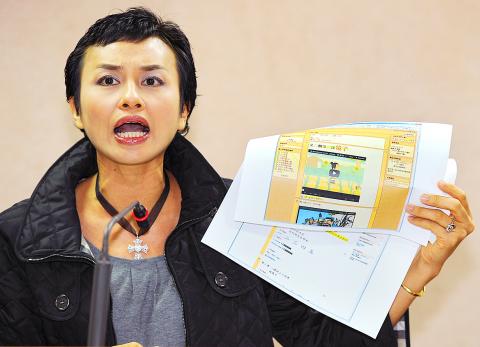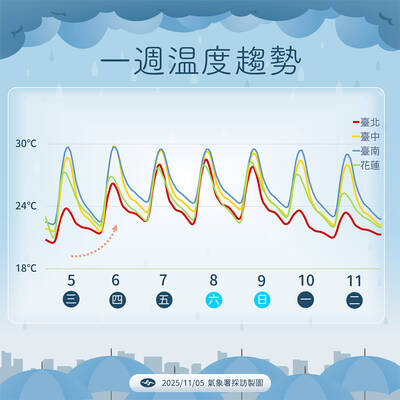Overseas Chinese Affairs Council (OCAC) Minister Wu Ying-yih (吳英毅) came under fire from the Democratic Progressive Party (DPP) again yesterday over the council’s promotion of simplified Chinese characters.
In September, DPP Legislator Hsiao Bi-khim (蕭美琴) said that the name of the agency had been changed without prior notice from “Overseas Compatriots Affairs Commission” — a reversal of a former DPP administration’s decision in 2006 that opted for the politically neutral “compatriots” so as to unite Taiwanese expatriates divided by issues of national identity.
At a Foreign Affairs and National Defense meeting in the legislature yesterday, which was scheduled to review the council’s budget statement for next year, DPP Legislator Chiu Yi-ying (邱議瑩) criticized the council for creating online resources to learn simplified Chinese characters.

Photo: Liao Chen-hui, Taipei Times
Over the past four years, the council spent an average of NT$6 million (US$207,000) each year on the Web site, E-learning Huayu in Taiwan, even though the learning resources available for download are in simplified Chinese, Chiu said.
“Could it be that the OCAC is working to help China promote simplified characters?” she asked.
Hsiao questioned whether Wu valued simplified Chinese characters more than traditional Chinese characters and Taiwanese culture.
“China sets up Confucius Institutes around the world to teach simplified Chinese characters. Don’t bother helping China promote simplified Chinese characters,” Hsiao said.
Wu said that the simplified Chinese characters available on the Web site were uploaded by Chinese-language teachers in the private sector and were not provided by the council.
“Actually we juxtapose learning resources in traditional and simplified characters on the Web site. The learning resources in simplified Chinese characters help people who know simplified Chinese characters to learn traditional Chinese characters,” Wu said.
Chinese Nationalist Party (KMT) Legislator Chan Kai-chen (詹凱臣) also found it “inappropriate” that a government-administered Web site provided Chinese-language learning resources in simplified characters, despite the “good intention.”
When pressed on the issue, Wu agreed to remove the characters.
Regarding the agency’s name change — a decision which has been decried by expatriates, Wu said that the council recognized the situation.
“We noticed that about 120 overseas compatriot communities have systematically voiced their opposition [to the name change]. But overall, the number of overseas compatriot communities that we have contact with amounts to 4,000 or 5,000,” he said.
Hsiao responded by saying: “You said 4,000 or 5,000? Many of the compatriots have never resided in Taiwan. They never pay taxes in Taiwan. They were not born in Taiwan.”
A total of NT$1.3 billion was earmarked for the council’s budget for next year.
Wu called on legislators not to cut the budget as he said that under the current budget for next year, the council could spend only NT$480 on each expatriate, if the population of expatriates includes all those people who have moved from Taiwan.
The council has a broader definition of the expatriate population — ethnic Chinese who live in an overseas country and identify with the Republic of China (ROC).
In related developments, Wu said he agreed to renaming the agency to ROC (Taiwan) Overseas Community Affairs Council after opposition legislators threatened to freeze its budget. Wu said he would ask the Executive Yuan to approve the change.

Three Taiwanese airlines have prohibited passengers from packing Bluetooth earbuds and their charger cases in checked luggage. EVA Air and Uni Air said that Bluetooth earbuds and charger cases are categorized as portable electronic devices, which should be switched off if they are placed in checked luggage based on international aviation safety regulations. They must not be in standby or sleep mode. However, as charging would continue when earbuds are placed in the charger cases, which would contravene international aviation regulations, their cases must be carried as hand luggage, they said. Tigerair Taiwan said that earbud charger cases are equipped

Foreign travelers entering Taiwan on a short layover via Taiwan Taoyuan International Airport are receiving NT$600 gift vouchers from yesterday, the Tourism Administration said, adding that it hopes the incentive would boost tourism consumption at the airport. The program, which allows travelers holding non-Taiwan passports who enter the country during a layover of up to 24 hours to claim a voucher, aims to promote attractions at the airport, the agency said in a statement on Friday. To participate, travelers must sign up on the campaign Web site, the agency said. They can then present their passport and boarding pass for their connecting international

UNILATERAL MOVES: Officials have raised concerns that Beijing could try to exert economic control over Kinmen in a key development plan next year The Civil Aviation Administration (CAA) yesterday said that China has so far failed to provide any information about a new airport expected to open next year that is less than 10km from a Taiwanese airport, raising flight safety concerns. Xiamen Xiangan International Airport is only about 3km at its closest point from the islands in Kinmen County — the scene of on-off fighting during the Cold War — and construction work can be seen and heard clearly from the Taiwan side. In a written statement sent to Reuters, the CAA said that airports close to each other need detailed advanced

UNKNOWN TRAJECTORY: The storm could move in four possible directions, with the fourth option considered the most threatening to Taiwan, meteorologist Lin De-en said A soon-to-be-formed tropical storm east of the Philippines could begin affecting Taiwan on Wednesday next week, the Central Weather Administration (CWA) said yesterday. The storm, to be named Fung-wong (鳳凰), is forecast to approach Taiwan on Tuesday next week and could begin affecting the weather in Taiwan on Wednesday, CWA forecaster Huang En-hung (黃恩鴻) said, adding that its impact might be amplified by the combined effect with the northeast monsoon. As of 2pm yesterday, the system’s center was 2,800km southeast of Oluanbi (鵝鑾鼻). It was moving northwest at 18kph. Meteorologist Lin De-en (林得恩) on Facebook yesterday wrote that the would-be storm is surrounded by